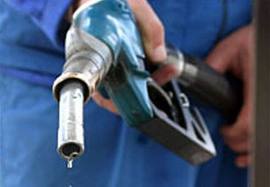…Nigeria’s imports total 60 pct of all West African gasoline
…Costs for higher-quality gasoline total $15.7 million/month
 Princewill Demian, with agency reports
Princewill Demian, with agency reports
15 March 2018, Sweetcrude, Abuja – Nigeria will begin cutting the sulfur levels allowed in imported fuels in July, a year after an initial deadline, the Nigerian National Petroleum Corporation (NNPC) has said.
In line with the change long sought by health and environmental campaigners, West African nations had promised higher quality by July 2017 as part of a United Nations Environmental Programme (UNEP) campaign, but only Ghana met the deadline.
Nigeria imports roughly 900,000 tonnes of gasoline every month, accounting for 60 percent of West African imports of the fuel, meaning its choices on fuel quality are likely to impact the entire region.
Nigeria will lower the top level of sulfur in diesel to 50 parts per million (ppm), from 3,000 ppm, by July 1, Mr. Anibor O. Kragha, NNPC’s chief operating officer of refineries and petrochemicals said in a presentation to the African Refiners Association (ARA).
Gasoline sulfur level cuts, a cost that will be borne largely by the government due to capped prices for the fuel, will start in October, moving to 300 ppm from 1,000 ppm.
Nigeria is targeting a cut to 150 ppm by October 1, 2019, Kragha said.
The Standards Organization of Nigeria (SON), the body responsible for setting requirements for imported goods, published tighter quality rules last year, but another government body – the Department of Petroleum Resources (DPR) – did not issue revised specifications.
James McCullagh, analyst with Energy Aspects, said that meant “NNPC currently has the right rather than the obligation to actually import it (cleaner fuels).”
“This latest move would merely crystallize that obligation,” he said.
Kragha told journalists in Cape Town that the ministries of Environment, Health, Petroleum Resources and Industry and Trade were working together to finalize rules that would be distributed to importers at some point in the second quarter.
UNEP, the ARA and health campaigners have been pushing West African nations to ban fuels that have been illegal in Europe and the United States for years due to what they say are significant health problems associated with sulfur emissions – particularly in dense urban areas such as Lagos.
The region is one of the last on earth where it is legal to sell fuels with sulfur levels at and above 1,000 ppm, as east and north African nations and major Asian consumer countries such as China and India have already tightened rules.
Kragha, in a presentation during ARA Week in Cape Town, said that while Nigeria was committed to cleaner fuel standards, “significant costs” complicated efforts to meet the deadline.
The presentation said that the first shift to cleaner gasoline would cost $11.7 million per month, and the second $15.7 million per month. The diesel reduction would cost $2.8 million per month.
Because gasoline prices are capped in Nigeria, and NNPC itself has been importing the bulk of it over the past year via crude for product swaps, the government is likely to bear much of the initial costs for a cleaner specification.
Diesel prices are deregulated, meaning consumers will pay directly for the better-quality fuels. Nigeria’s own oil refineries will have until 2021 to meet the new sulfur levels, Kragha said.



